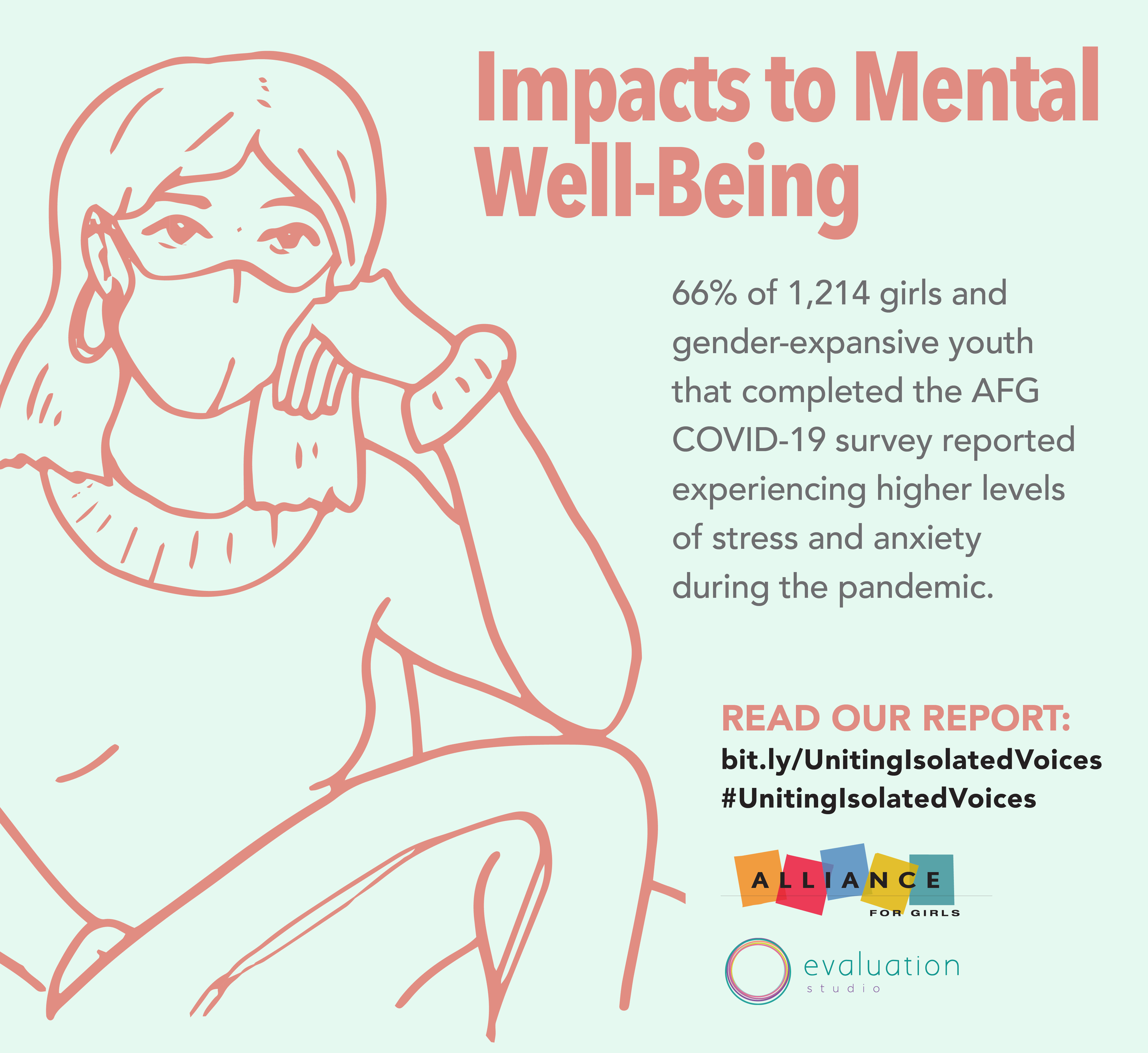Uniting Isolated Voices: Girls & Gender Expansive Youth During COVID-19

The COVID-19 pandemic did not create new inequities, it dramatically worsened existing ones. For girls, especially Black and Brown girls and gender expansive youth, multiple factors including isolation, economic insecurity, increased caretaking responsibilities, and stress and anxiety have destabilized their sense of safety and ability to thrive. Uniting Isolated Voices provides a roadmap on the investments and strategies needed to achieve greater equity, especially for girls and gender expansive youth of color.
Black and Brown girls have felt a myriad of negative impacts from the COVID-19 pandemic, destabilizing their sense of safety and ability to thrive. Alliance for Girls (AFG) surveyed 1214 girls about their experiences with the COVID-19 pandemic and what supports they need in order to build pathways to success. The Uniting Isolated Voices report outlines survey findings and provides a roadmap to achieving greater equity for girls. AFG’s digital toolkit offers sample social media posts, visuals, key links, and more that girls’ allies can share to inspire action to heal and rebuild communities where every girl thrives.
Access the Uniting Isolated Voices report and digital toolkit from Alliance for Girls’ website. For questions about using the digital toolkit, contact Raquel at raquel@alliance4girls.org.

